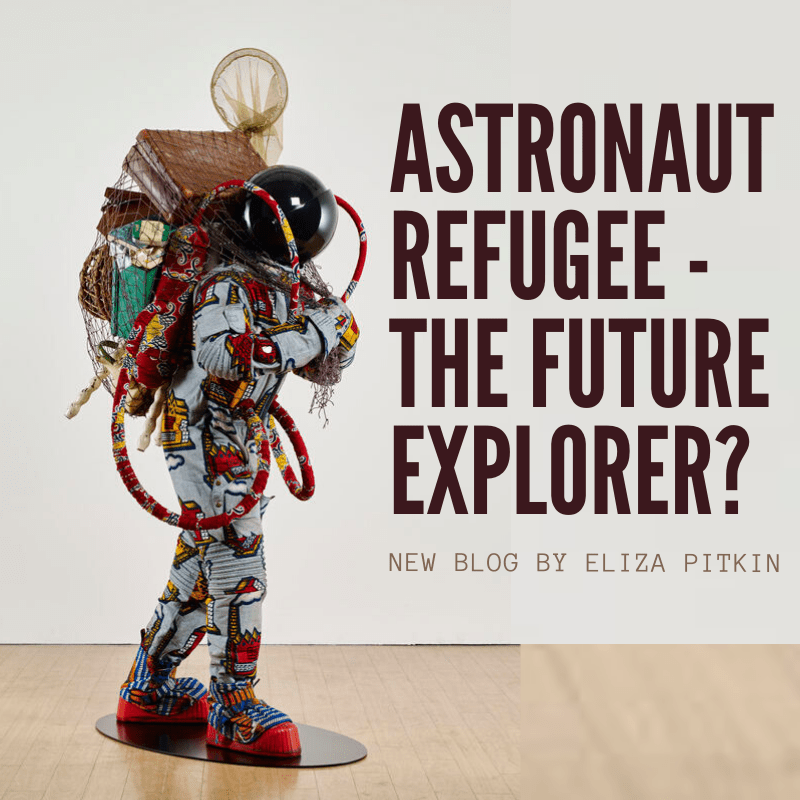So what a funny world we find ourselves in. There is a high level of uncertainty in the air and an anxiety for the future. All the structures we thought protected us; whether it be money, our jobs or our health system have now been threatened which makes us realise the fragility of these once-seemingly safe constructs. This pandemic has proved the things we already knew – here in the UK the National Health Service (NHS) needs a better reallocation of resources and the more financially vulnerable people of our society need a better system in place. It is little consolation to see health services and societies elsewhere (e.g. USA, Italy, Spain) seem to be in similar or greater difficulties. So what better time to consider what do we want to see for a cultural/societal, or even, a global-wide change?
When this pandemic first started becoming major news, I couldn’t help but chuckle at how we react in such extreme measures (albeit necessary) when it comes to our immediate health but yet we’ve been grappling with the extremity of planet destruction, animal extinction and social in-balances for ages without any apparent urgency or effective action.
But that makes sense as after all, current Western society relies on the presence of ego in order to continue; the idea that YOU is important, YOU are someone deserving and YOU are unique. A consumerist culture will thrive when it’s built on individualism and looking out for oneself. So now when we’re in mandatory isolation, the world seems a more hyperbolised version of what it already was. It made me think about what we prioritise and what we take for granted in our current culture, and often these are the structures that really matter. Family, health and community. When the pandemic could easily make us react selfishly, now more than ever this is time to re-group, re-evaluate and re-construct.
We can look to the UN’s 17 Sustainable Development Goals as a guide for what needs changing. When it comes to new business and infrastructure as a result of bankrupt businesses, I would like to think there will be no tolerance for new companies who are not conscious and ethical in their practices. We just don’t have space for them anymore. We’ve decreased our consumption of unnecessary products and are using less carbon emissions from not travelling. When life becomes more precious, suddenly our consumption and production becomes more responsible, this here is one step towards more sustainable living.
So we’re all in our homes, what’s happening outside? Since the strict quarantine measures, there has been an evident effect on pollution, reports revealing a significant drop in nitrogen dioxide concentrations all over the world. Satellites overlooking China reported much clearer skies after the isolation rules. Even more, Life Below Water (SDG 14) came back to reclaim the waters of Italy with shoals of tiny fish surfacing, crabs and colourful plant-life alongside dolphins, swans and other wildlife on land. So turns out, natural life can continue quite romantically without us hoarding this space. A friend said to me a beautiful phrase which was, “mother earth wants to rebuild herself”, so why don’t we let her in our everyday lives – see image below from The Guardian showing the pollution drop in China.
When what we thought we knew has gone, we have to look to more consistent things in life. This will be looking to nature and dare I say it, love. Love for our family, our neighbours or our wider community. More than ever, we can feel part of a global civilisation as we are all interconnected through this experience, when one person takes action, it benefits everyone. This time in lockdown could just be a blessing in disguise, maybe a pendulum swing leading towards a fresh start hopefully bring about a deeper sense of the wider collective, you, me, them, and us.
Let’s hope for a more harmonious future, if you feel this has resonated with you, talk to your friends about it, maybe volunteer or at the very least, have a look at the 17 Sustainable Development Goals project and think about what small steps you personally could take to help us all to reach a fairer, safer World and a brighter future.
Open your hearts and take care of your bodies! Let us know how you’re spending your time.
Take care, keep well!
Blog: Eliza Pitkin
April 2020
“tellus” is a Latin word meaning “Earth” e.g. Tellus Mater the ancient Roman Earth Mother Goddess







